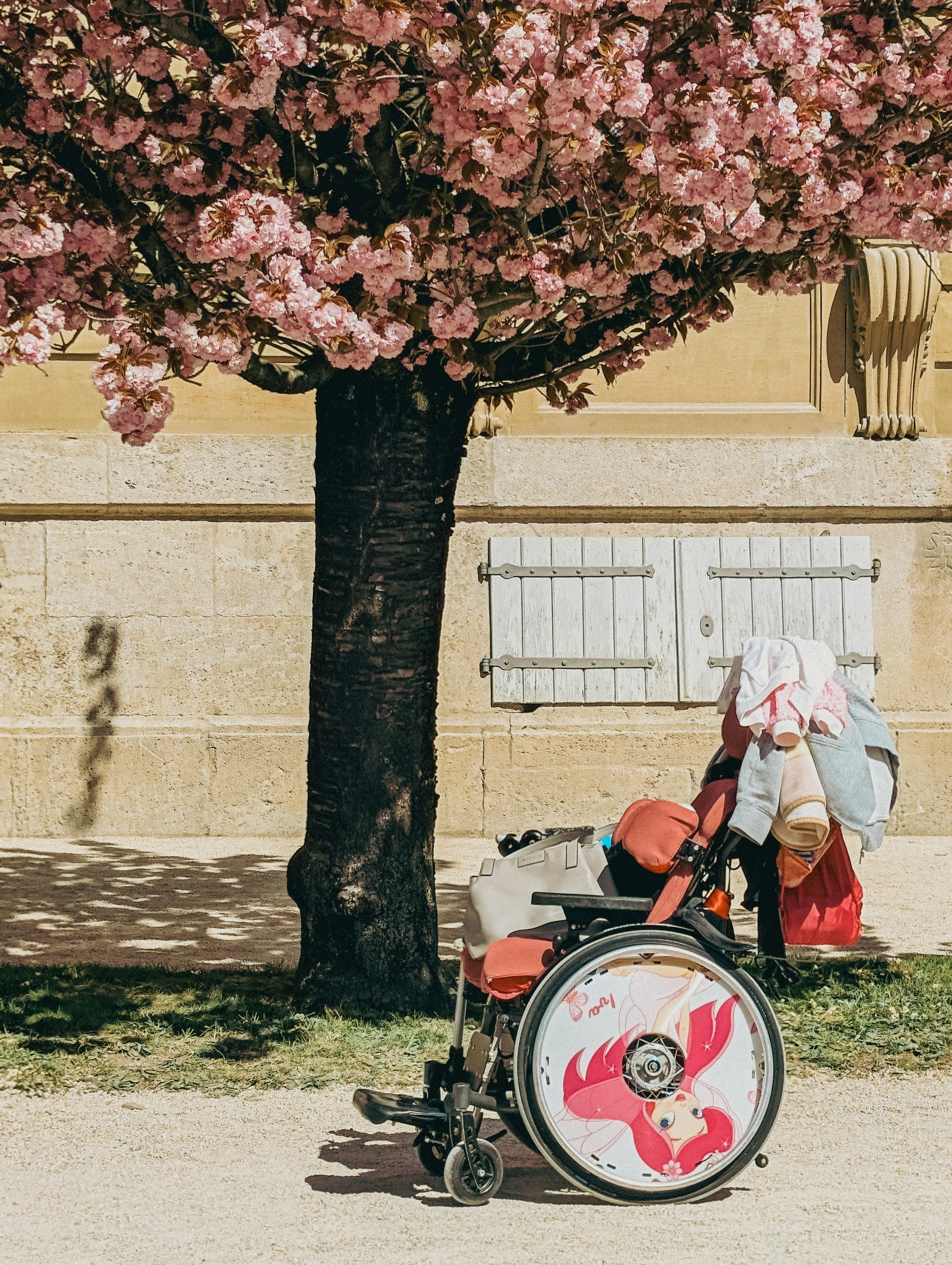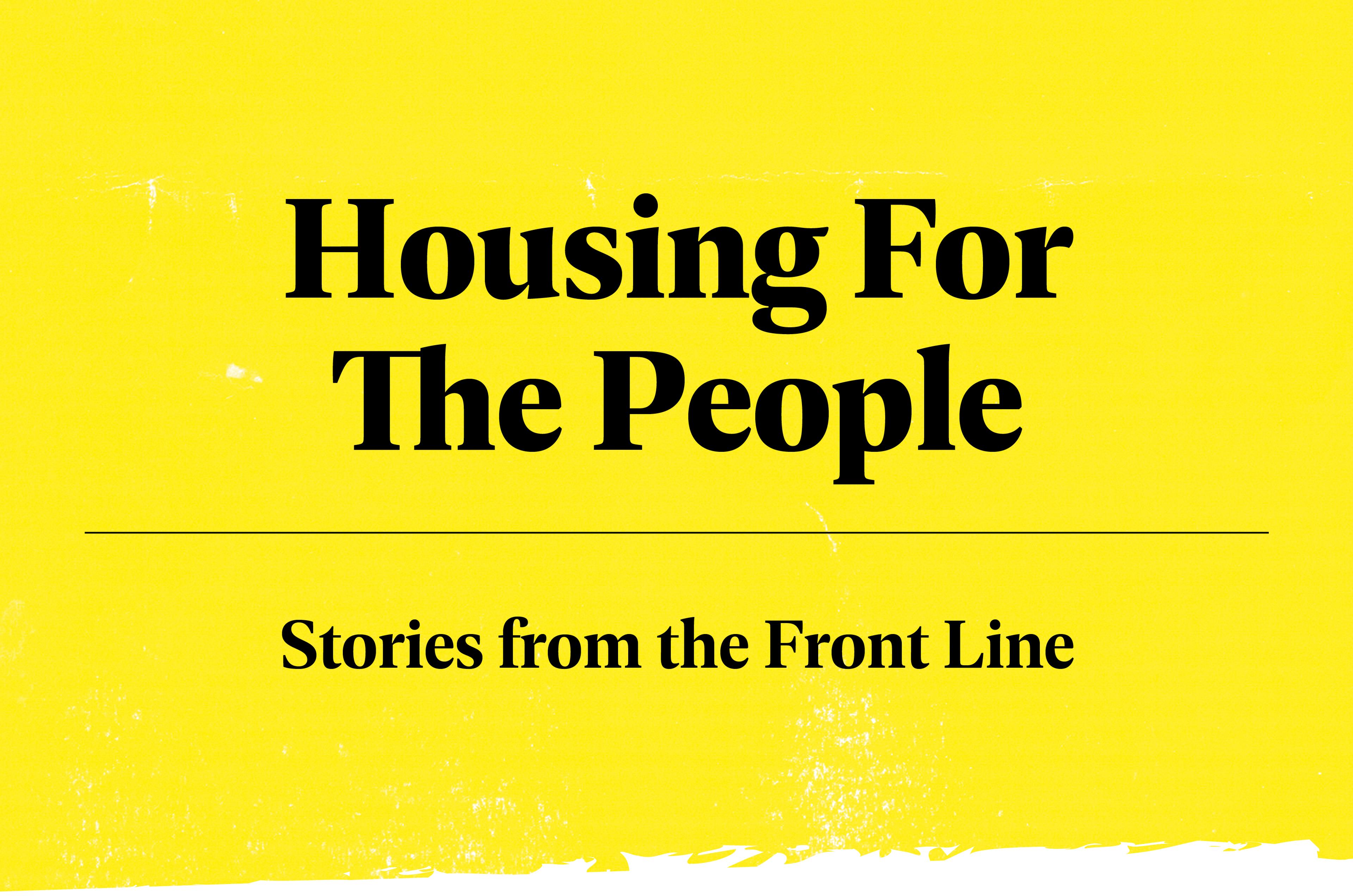Sociologist Siegfried Saerberg: “Accessibility is an ongoing process”

Photo by Alexey Kuleshov
By Benjamin Buchholz
- Lived experience

Hinz&Kunzt: Mr Saerberg, are you disabled?
Siegfried Saerberg: I have certain characteristics that are read as a disability because I am blind. But I would say that I am made disabled – a lot of traffic situations are not well regulated for me, supermarket goods are not labelled for the blind, many software products are not usable, and so on.
Who is making you disabled?
There is general hostility towards disabled people, but most people you meet are friendly and helpful. Accessibility not being taken into account is a structural problem.
You once wrote that blindness is not a shortcoming, but a style of personal perception. Is that a bit euphemistic?
No, I don’t think so. I approach the world differently. I don’t look at it; I listen to it and touch it, I feel it. I learn how by interacting with other people, things and the environment. It is also important to exchange ideas with other blind people so that we can form our own culture. This makes it a social phenomenon, rather than a natural one.
You say this as a sociologist. You are a professor of Disability Studies. In your opinion, has there been a change in how “normal” disability is perceived as being? In children’s picture books today, wheelchair users are a matter of course, and on Netflix, I can watch the life of a family with an autistic son in the series Atypical...
Yes. Disabled people have also appeared in literature and other cultural products in the past, but there they mostly had a narrative function. Disability was used to characterise a figure who also had moral flaws. Now, disabled people are portrayed more as everyday people with their wheelchairs, canes or hearing aids.
Nevertheless, disabled people are still discriminated against today. It is even written in Germany’s Basic Law: “No one should be disadvantaged because of their disability.” Germany was also one of the first countries to sign the UN Convention on the Rights of Persons with Disabilities in 2007. But the United Nations presented a long list of shortcomings two years ago. Why are theory and practice so far apart?
At the University of Applied Sciences for Social Work and Social Welfare, we took a close look at the measures listed in the City of Hamburg’s state action plan for implementing the Convention on the Rights of Persons with Disabilities and put together strong criticism of them from disabled people.
Many measures relate to administrative projects. However, there are no obligations for companies to install barrier-free toilets or ramps in front of and inside shops, for example. In Germany, we tend to fear placing too great a burden on the economy. This is why we have criticised the politicians in Hamburg for paying too much lip service.
As a non-disabled person, I have the impression that a lot has happened in Hamburg in recent years. Guide strips for visually impaired people are a normal part of streets now, and underground stations are constantly being remodelled to make them “barrier-free”. Would you disagree with my perception?
Things are indeed happening, but much more is possible. Why aren’t all shops barrier-free? That would be great, also for the many elderly people who have to struggle with barriers. What about software products? What about the chances of getting good resources, barrier-free housing and good care? A lot of savings and restrictions have been made recently.
Can the world be barrier-free for everyone?
In a utopia, definitely. In reality, there will probably always be moments when barriers arise, which means that we have to think about how we can eliminate them. I believe that it will always be an ongoing process. But whether I have to deal with 1,000 barriers in my everyday life or only 100 makes a big difference.
Your Centre for Disability Studies is known for organising particularly inclusive courses. What is a typical seminar with you like?
The seminars are online, so there are no physical barriers. We hope that many people will be able to take part online, or find someone who can help them with this option. We also offer sign language and written interpreting for deaf students. We would also like to offer simultaneous translation into plain language, which is a challenge, especially in an academic context. But the financial resources are lacking.
The Hamburg Senate has wound up the centre at the Protestant University of Applied Sciences for Social Work and wants to continue the research at the University of Applied Sciences (HAW) and “strengthen it in terms of structure and content”. How do you see this?
For me, this is a clear step backwards. They want to shut down a critical discipline like Disability Studies and concentrate on the classic special educational and social work approach to disability. The centre is due to close in 2026 and Disability Studies at HAW will not open before 2028. There are two years in between!
Did you have a say in the decision?
No, we were not involved in these considerations. Disabled people are involved in all decisions in Disability Studies. It is also important to us that disabled people hold management positions, which will no longer be the case in the future.
I find the whole procedure very callous. We are trying to organise opposition and have posted a petition on the internet. Exerting pressure is the only chance we have.
The reorganisation comes at a time when right-wing extremists are gaining more and more support and the AfD [far-right party Alternative for Germany] is leading the polls. What consequences do you fear for disabled people?
I fear the worst. Funds for disabled people will be removed. Behind this is the idea that disabled lives are worth less. We thought that this idea had been overcome, but apparently it has not.
As a researcher, what can you say to counter this?
That it is ethically wrong, because disabled people have the same rights as everyone else. It is also economically wrong, because disability is an important economic factor. And I can point out that only three to five per cent of all disabilities are congenital; the rest come with time. The older you get, the more likely it is that you will become disabled yourself. AfD voters also want to get on with their lives as best they can and receive medical care. So think about yourselves, too!

